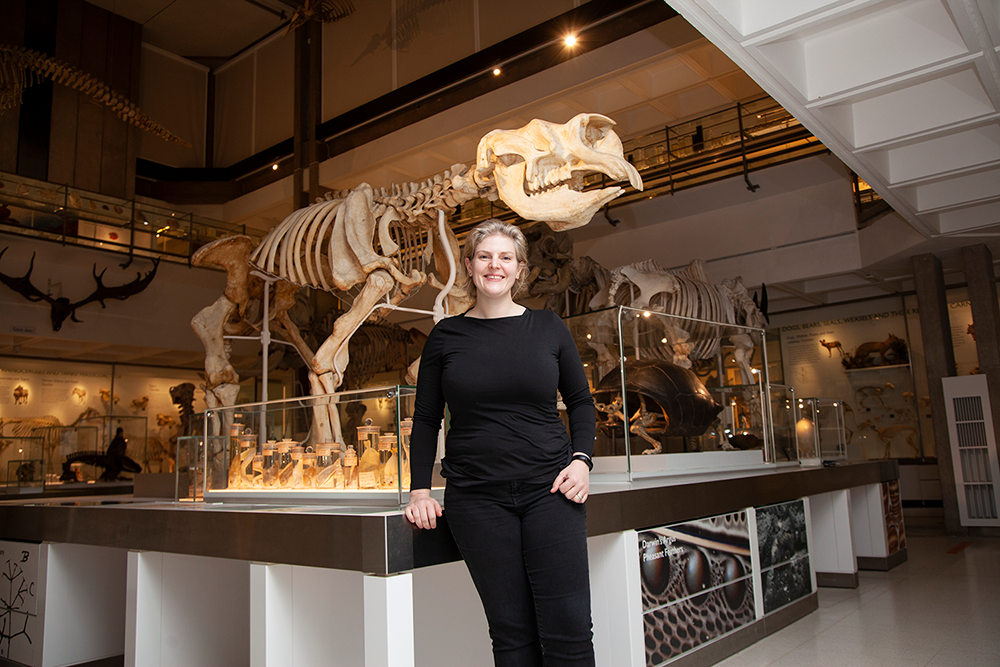Dr. Emily Mitchell, University of Cambridge
Dr. Emily Mitchell, Assistant Professor and Curator of non-insect Invertebrates at the Department of Zoology and University Museum of Zoology, Cambridge University, will present: "Unlocking the secrets of early animal evolution"
Hovedinnhold

The sudden appearance of animals in the fossil record 580 million years ago, during the Ediacaran time period, after billions of years of microbial life, is one of the most important events in the history of life on Earth. Studying Ediacaran evolution is fraught with difficulties due to uniqueness of Ediacaran anatomies which lack clear Phanerozoic counterparts. However, the preservation of Ediacaran fossils is exceptional, with thousands of organisms preserved where they lived. This exceptional preservation means that we can use a suite of ecological methodologies, normally only used on extant communities to understand the ecology and evolution of the first animals. In order to map out these Ediacaran communities, we laser-scan hundreds of square meters of Ediacaran bedding planes to capture over 30,000 fossils in-situ across from Newfoundland, Canada and Charnwood Forest, UK. Using spatial, Bayesian network and metacommunity analyses, we have started to tease apart Ediacaran eco-evolutionary dynamics, revealing how Ediacaran dynamics shifted from a stochastic start, dominated by clonal reproduction, reduced competition, and limited environmental interactions to more complex dynamics, with niche specialization and strong biotic interactions just prior to the Cambrian.
